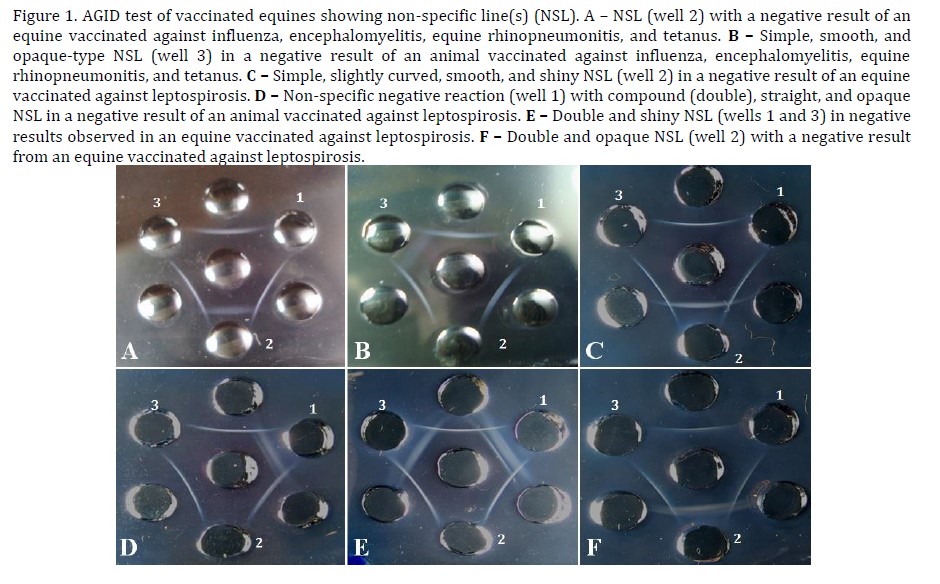Non-specific reactions caused by vaccination in agar gel immunodiffusion for diagnosis of equine infectious anemia
DOI:
https://doi.org/10.21708/avb.2020.14.1.8534Resumen
Equine infectious anemia (EIA) is one of the most important diseases from the health and economic point of view for equidae breeding, as it does not have treatment and vaccines. The Brazilian Ministry of Agriculture, Livestock and Food Supply (MAPA) instituted mandatory sanitary measures that include the official diagnosis by the agar gel immunodiffusion (AGID) test and sacrifice of seropositive animals to control this disease. Seventy-two seronegative equines, challenged with different vaccines, were used to verify the occurrence of non-specific reactions in the AGID techniques. Five serological controls were performed one week after vaccination, at seven-day intervals. The results indicated that the use of vaccines in equines in a period that precedes the performance of laboratory tests for the diagnosis of EIA does not induce seroconversion. However, 11.11% of the equines vaccinated against influenza, encephalomyelitis, equine rhinopneumonitis, and tetanus, and 15.38% of those vaccinated against leptospirosis had non-specific negative reactions to AGID. In this study, there was a non-specific line in the AGID for EIA described by Ordinance No. 84/1992 by MAPA but already mentioned in the Normative Instruction 55 of 26 November 2018.
Descargas

Descargas
Publicado
Número
Sección
Licencia
Autores que publicam na Acta Veterinaria Brasilica concordam com os seguintes termos: a) Autores mantém os direitos autorais e concedem à revista o direito de primeira publicação, com o trabalho simultaneamente licenciado sob a Licença Creative Commons Attribution que permite o compartilhamento do trabalho com reconhecimento da autoria e publicação inicial nesta revista. b) Autores têm autorização para assumir contratos adicionais separadamente, para distribuição não-exclusiva da versão do trabalho publicada nesta revista (ex.: publicar em repositório institucional ou como capítulo de livro), com reconhecimento de autoria e publicação inicial nesta revista. c) Autores têm permissão e são estimulados a publicar e distribuir seu trabalho online (ex.: em repositórios institucionais ou na sua página pessoal) a qualquer ponto antes ou durante o processo editorial, já que isso pode gerar alterações produtivas, bem como aumentar o impacto e a citação do trabalho publicado (Veja O Efeito do Acesso Livre).


 Esta obra está licenciada com uma Licença
Esta obra está licenciada com uma Licença 